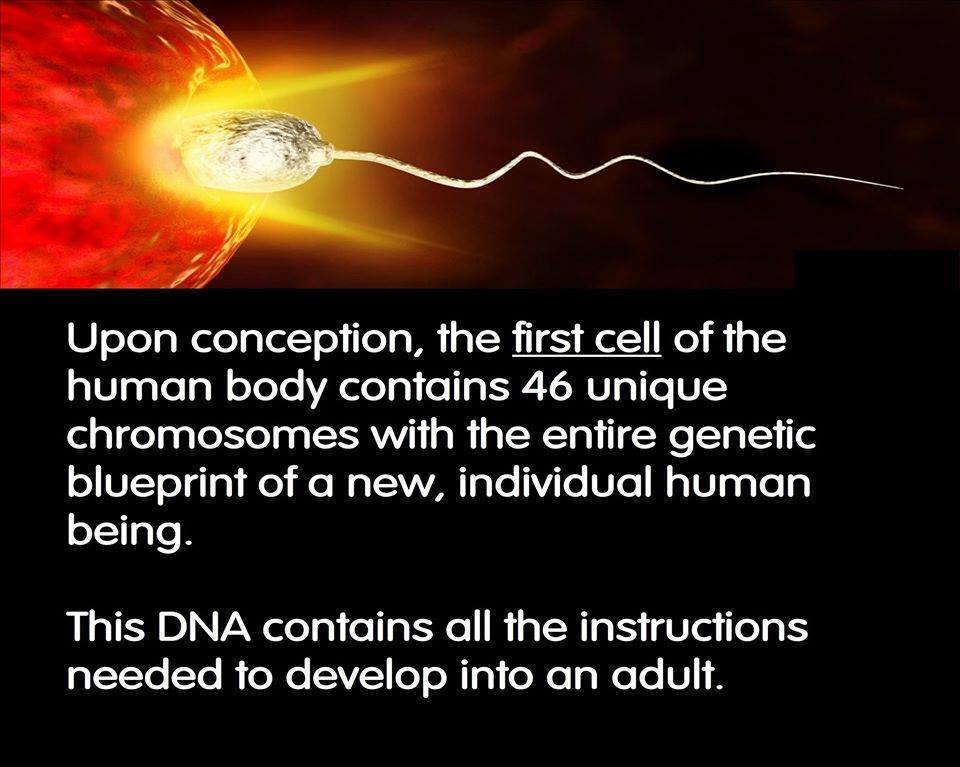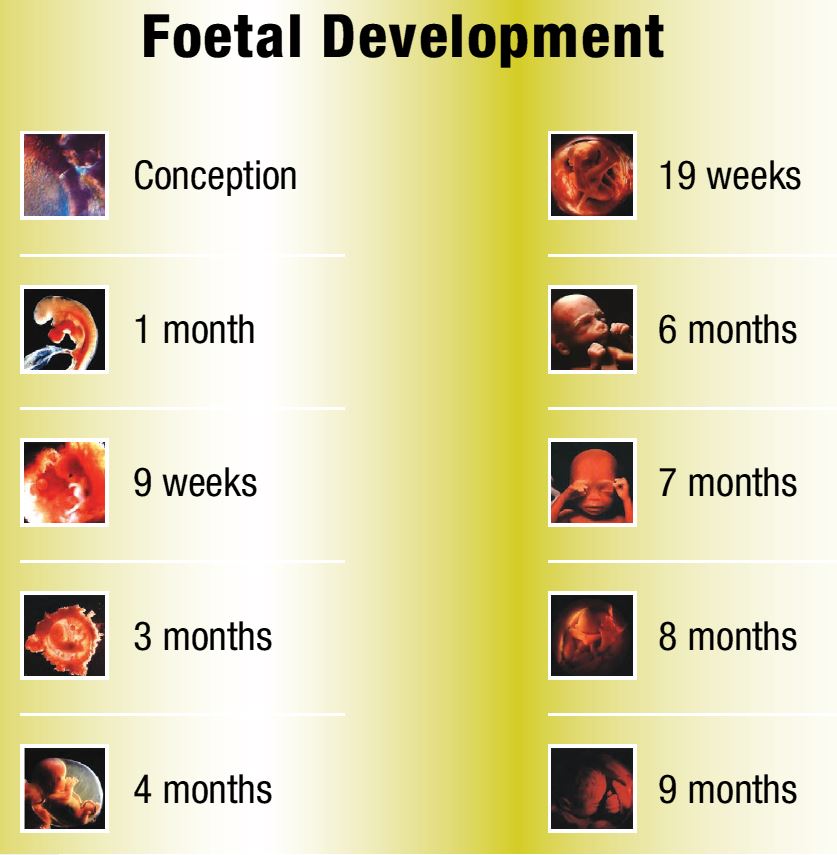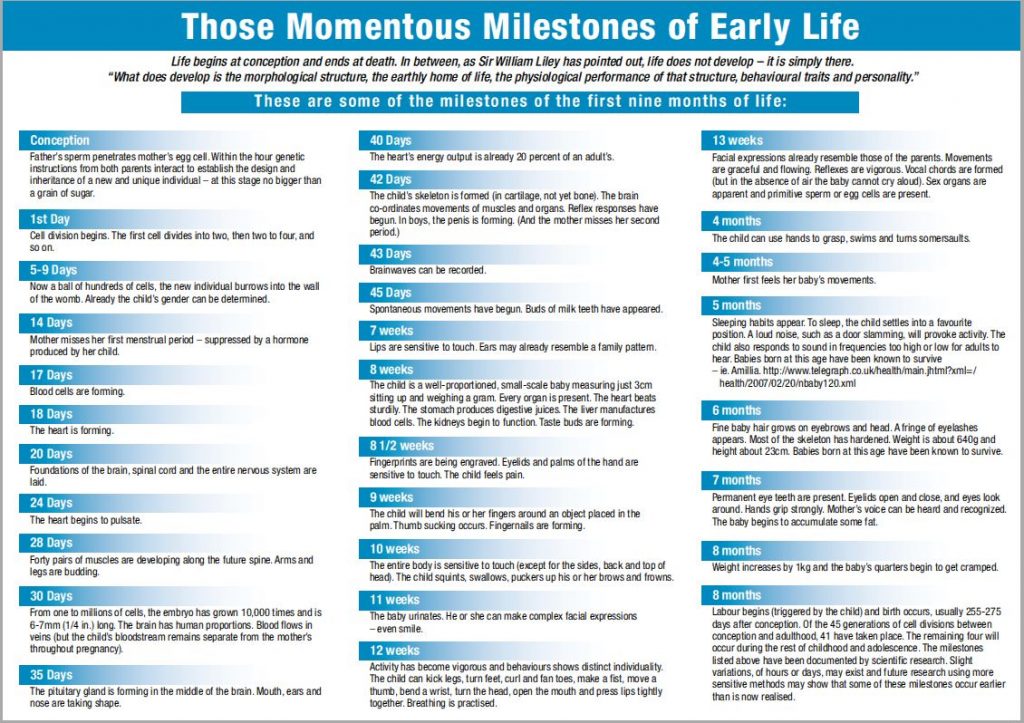MANY SCIENTISTS HAVE PROVED THAT LIFE BEGINS AT CONCEPTION!!
Denying That Life Begins at Conception is Denying Science!
Follow the science – LIFE begins at conception. Watch as Alexander Tsiaras breaks down the development of a baby from the moment of conception to birth. Every unique and whole life is precious from the moment egg and sperm meet in the following video presentation – Conception to birth – visualised: https://www.youtube.com/watch?v=fKyljukBE70YD8/
When is a life, a life? Scientific research clearly defines that the beginning of life is at conception. Immediately after conception each cell has sufficient information in its DNA structure to produce a complete human being. Destruction at any stage of the development of a person, from the single cell stage up to several million cells, is the taking of a life.
The use of the terminology ‘right to choose’ is a perversion of the truth because it exploits the language of rights as a pretext for taking away the most basic right of all: the right to life. As a result, those who are the most drastically affected, namely the victims (the Unborn Child), are the ones who are denied the ‘right to choose’. It is unethical and an abuse of power to destroy those who cannot defend themselves. It is therefore not surprising that the largest survey ever done amongst South African doctors on abortion showed that more than 80% of them are against abortion on demand. http://www.doctorsforlifeinternational.com/pg/abortion/index.html
“WHAT IS AN EMBRYO”
Definition
noun, plural: embryos
(zoology) A multicellular organism that primarily undergoes extensive and rapid growth and differentiation between the time of fertilization and fetal stage in higher forms while larval stage in lower forms
(human biology) Baby in the early developmental stage, after the zygote phase (at fertilization) to week eight from the time of fertilization (note: week eight from the time of fertilization is equivalent to 10 weeks gestational age)
(botany) A young, developing plant, such as the rudimentary plant inside the seed of higher plant forms or that inside the archegonium of mosses and ferns
Supplement
In humans, the embryo refers to the growing organism after being a zygote and before being a fetus. The zygote becomes an embryo immediately after series of cell division. After the continuous cell division and differentiation in eight weeks, the embryo becomes a fetus in which the organism undergoes extensive organogenesis.
The embryo has its own autonomy, its own brain, its own nervous system, its own blood circulation. If its life is affected by that of the mother, it also affects hers. It can have its own illnesses in which the mother has no part. Conversely, it may be quite healthy even though the mother is seriously ill. It may die while the mother continues to live. It may also continue to live after its mother’s death, and be eventually saved by a timely operation on her dead body. In short, it is a human being in its own right.
Karl Barth, Church Dogmatics (Edinburgh: T & T Clark, 1985 [1961]) 3.4.416.
Foetal Development Chart from the Cherish Life brochure: “Momentous Milestones of Early Life”
Those Momentous Milestones of Life from the Cherish Life brochure: “Momentous Milestones of Early Life”
Apart from spiritual or moral concerns, it is a simple fact of biology that the foetus possesses every attribute of human life we find in a newborn infant, with the exception of independent physical viability. Left unharmed, it will soon develop this capacity as well. If a life must be independently viable to be viewed as a person, a young child might well fail this standard, as would those of any age facing severe physical challenges.



